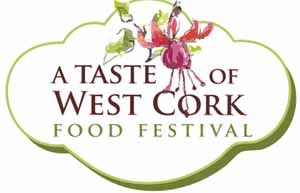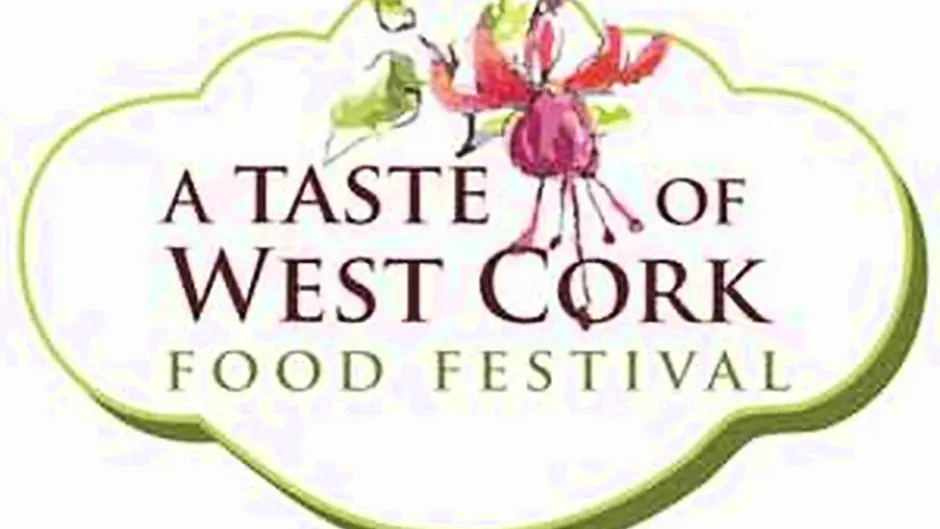AS part of A Taste of West Cork Food Festival programme, a Sustainable Dairy Farm Income Conference will be held at the West Cork Hotel, Skibbereen, on Thursday morning next, September 10th.
 AS part of A Taste of West Cork Food Festival programme, a Sustainable Dairy Farm Income Conference will be held at the West Cork Hotel, Skibbereen, on Thursday morning next, September 10th.
AS part of A Taste of West Cork Food Festival programme, a Sustainable Dairy Farm Income Conference will be held at the West Cork Hotel, Skibbereen, on Thursday morning next, September 10th.
Milk price is a burning issue for West Cork dairy farmers. Prices have fallen dramatically from the highs of 2013 and 2014 – down from 35 cent per litre or more to around 25c a litre this year. With milk quotas gone, and dairy markets in some turmoil, where will milk prices go in this new environment? And, against this background, what are the most sensible decisions for dairy farmers to take in order to stay in business and make a good family income when milk prices are so volatile?
These will be a central questions that an impressive panel of speakers will address at the Sustainable Dairy Farm Income Conference taking place in the West Cork Hotel on Thursday next, 10th. The programme begins with registration and refreshments at 8am and the first speaker will be at the podium at 8.30 sharp.
The speakers are:
•JJ Walsh, Carbery Group •Mark Faherty, Irish Dairy Board – Ornua
•John and Marie Hurley, Dunmanway dairy farmers
•Alan and Valerie Kingston, Glenilen Farm
The outlook for milk prices will be covered by JJ Walsh of Carbery Group and Mark Faherty, who is an economist with Ornua, the Irish Dairy Board. Both speakers will outline the factors that have led to the rise and fall of milk prices over the past two years.
With milk prices for 2015 coming in at well under 30c per litre, farmers will be keen to hear what JJ and Mark have to say about the price outlook for 2016. This is vital for decisions concerning expansion and investment in new facilities, cows, farm infrastructure and land improvement.
One message you can expect to hear is to be cautious when making profit projections because milk price will continue to be volatile and fluctuate around an average somewhere above 30c per litre (at 3.6% fat and 3.3% protein). So, to be sustainable, it makes sense to run a low cost production system that allows you to stay in business at low milk prices.
An excellent example will be dairy-farming couple John and Marie Hurley, who milk 120 cows at Kilronan, Dunmanway. John will explain how he focuses on what is under his control so as to build a sustainable dairy farming business that delivers the profits to finance their personal and family goals in the years ahead.
The variable cost figure is based on cows that are bred for fertility and milk solids that deliver a milk price 3cpl above the co-op average. Low costs are also a result of early turnout to grass and a long grazing season.
Alan and Valerie Kingston have taken a different route to family income sustainability on their 59-acre farm a few miles north of Drimoleague. In 1998, they milked 50 cows to fill a quota of 39,000 gallons.
They have developed Glenilen Farm Products, a farm-based business that manufactures a range of yogurt products, employs 40 people as well as providing a sustainable family income for Valerie, Alan and their three teenage children.
 AS part of A Taste of West Cork Food Festival programme, a Sustainable Dairy Farm Income Conference will be held at the West Cork Hotel, Skibbereen, on Thursday morning next, September 10th.
AS part of A Taste of West Cork Food Festival programme, a Sustainable Dairy Farm Income Conference will be held at the West Cork Hotel, Skibbereen, on Thursday morning next, September 10th.
Milk price is a burning issue for West Cork dairy farmers. Prices have fallen dramatically from the highs of 2013 and 2014 – down from 35 cent per litre or more to around 25c a litre this year. With milk quotas gone, and dairy markets in some turmoil, where will milk prices go in this new environment? And, against this background, what are the most sensible decisions for dairy farmers to take in order to stay in business and make a good family income when milk prices are so volatile?
These will be a central questions that an impressive panel of speakers will address at the Sustainable Dairy Farm Income Conference taking place in the West Cork Hotel on Thursday next, 10th. The programme begins with registration and refreshments at 8am and the first speaker will be at the podium at 8.30 sharp.
The speakers are:
•JJ Walsh, Carbery Group •Mark Faherty, Irish Dairy Board – Ornua
•John and Marie Hurley, Dunmanway dairy farmers
•Alan and Valerie Kingston, Glenilen Farm
The outlook for milk prices will be covered by JJ Walsh of Carbery Group and Mark Faherty, who is an economist with Ornua, the Irish Dairy Board. Both speakers will outline the factors that have led to the rise and fall of milk prices over the past two years.
With milk prices for 2015 coming in at well under 30c per litre, farmers will be keen to hear what JJ and Mark have to say about the price outlook for 2016. This is vital for decisions concerning expansion and investment in new facilities, cows, farm infrastructure and land improvement.
One message you can expect to hear is to be cautious when making profit projections because milk price will continue to be volatile and fluctuate around an average somewhere above 30c per litre (at 3.6% fat and 3.3% protein). So, to be sustainable, it makes sense to run a low cost production system that allows you to stay in business at low milk prices.
An excellent example will be dairy-farming couple John and Marie Hurley, who milk 120 cows at Kilronan, Dunmanway. John will explain how he focuses on what is under his control so as to build a sustainable dairy farming business that delivers the profits to finance their personal and family goals in the years ahead.
The variable cost figure is based on cows that are bred for fertility and milk solids that deliver a milk price 3cpl above the co-op average. Low costs are also a result of early turnout to grass and a long grazing season.
Alan and Valerie Kingston have taken a different route to family income sustainability on their 59-acre farm a few miles north of Drimoleague. In 1998, they milked 50 cows to fill a quota of 39,000 gallons.
They have developed Glenilen Farm Products, a farm-based business that manufactures a range of yogurt products, employs 40 people as well as providing a sustainable family income for Valerie, Alan and their three teenage children.
 AS part of A Taste of West Cork Food Festival programme, a Sustainable Dairy Farm Income Conference will be held at the West Cork Hotel, Skibbereen, on Thursday morning next, September 10th.
AS part of A Taste of West Cork Food Festival programme, a Sustainable Dairy Farm Income Conference will be held at the West Cork Hotel, Skibbereen, on Thursday morning next, September 10th.
Milk price is a burning issue for West Cork dairy farmers. Prices have fallen dramatically from the highs of 2013 and 2014 – down from 35 cent per litre or more to around 25c a litre this year. With milk quotas gone, and dairy markets in some turmoil, where will milk prices go in this new environment? And, against this background, what are the most sensible decisions for dairy farmers to take in order to stay in business and make a good family income when milk prices are so volatile?
These will be a central questions that an impressive panel of speakers will address at the Sustainable Dairy Farm Income Conference taking place in the West Cork Hotel on Thursday next, 10th. The programme begins with registration and refreshments at 8am and the first speaker will be at the podium at 8.30 sharp.
The speakers are:
•JJ Walsh, Carbery Group •Mark Faherty, Irish Dairy Board – Ornua
•John and Marie Hurley, Dunmanway dairy farmers
•Alan and Valerie Kingston, Glenilen Farm
The outlook for milk prices will be covered by JJ Walsh of Carbery Group and Mark Faherty, who is an economist with Ornua, the Irish Dairy Board. Both speakers will outline the factors that have led to the rise and fall of milk prices over the past two years.
With milk prices for 2015 coming in at well under 30c per litre, farmers will be keen to hear what JJ and Mark have to say about the price outlook for 2016. This is vital for decisions concerning expansion and investment in new facilities, cows, farm infrastructure and land improvement.
One message you can expect to hear is to be cautious when making profit projections because milk price will continue to be volatile and fluctuate around an average somewhere above 30c per litre (at 3.6% fat and 3.3% protein). So, to be sustainable, it makes sense to run a low cost production system that allows you to stay in business at low milk prices.
An excellent example will be dairy-farming couple John and Marie Hurley, who milk 120 cows at Kilronan, Dunmanway. John will explain how he focuses on what is under his control so as to build a sustainable dairy farming business that delivers the profits to finance their personal and family goals in the years ahead.
The variable cost figure is based on cows that are bred for fertility and milk solids that deliver a milk price 3cpl above the co-op average. Low costs are also a result of early turnout to grass and a long grazing season.
Alan and Valerie Kingston have taken a different route to family income sustainability on their 59-acre farm a few miles north of Drimoleague. In 1998, they milked 50 cows to fill a quota of 39,000 gallons.
They have developed Glenilen Farm Products, a farm-based business that manufactures a range of yogurt products, employs 40 people as well as providing a sustainable family income for Valerie, Alan and their three teenage children.








